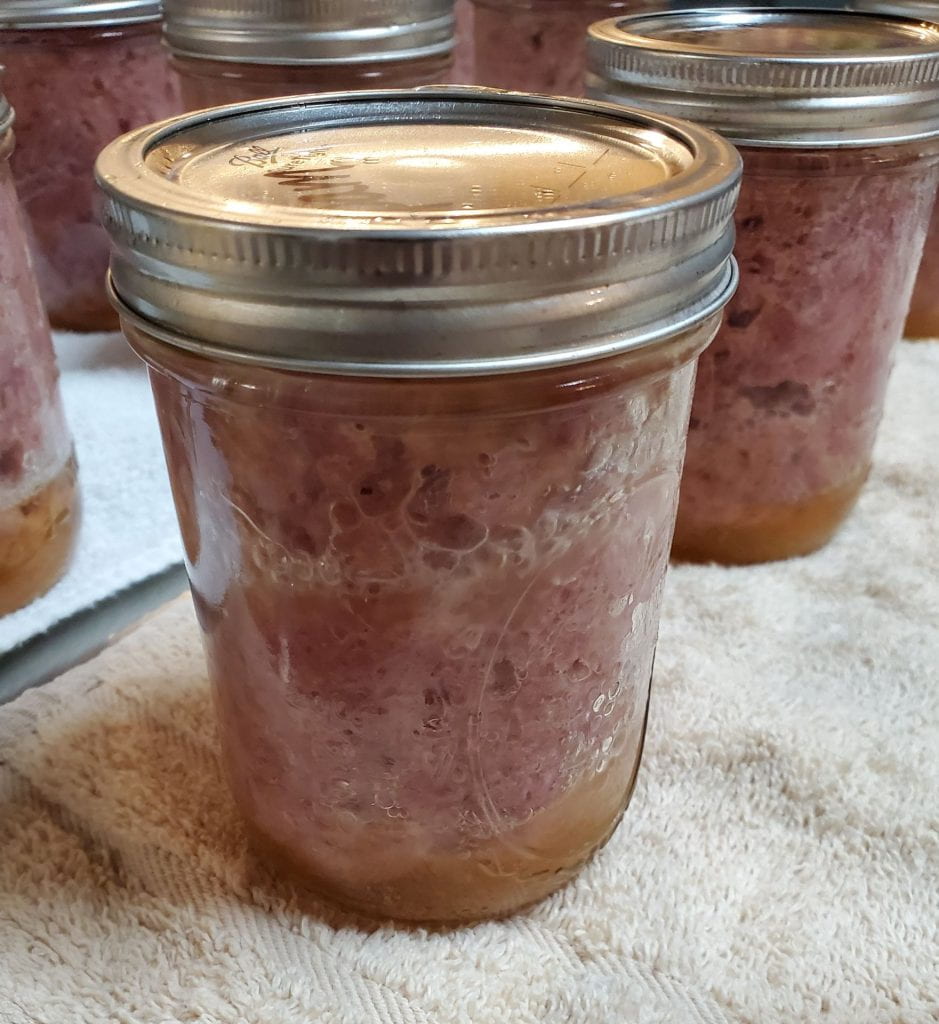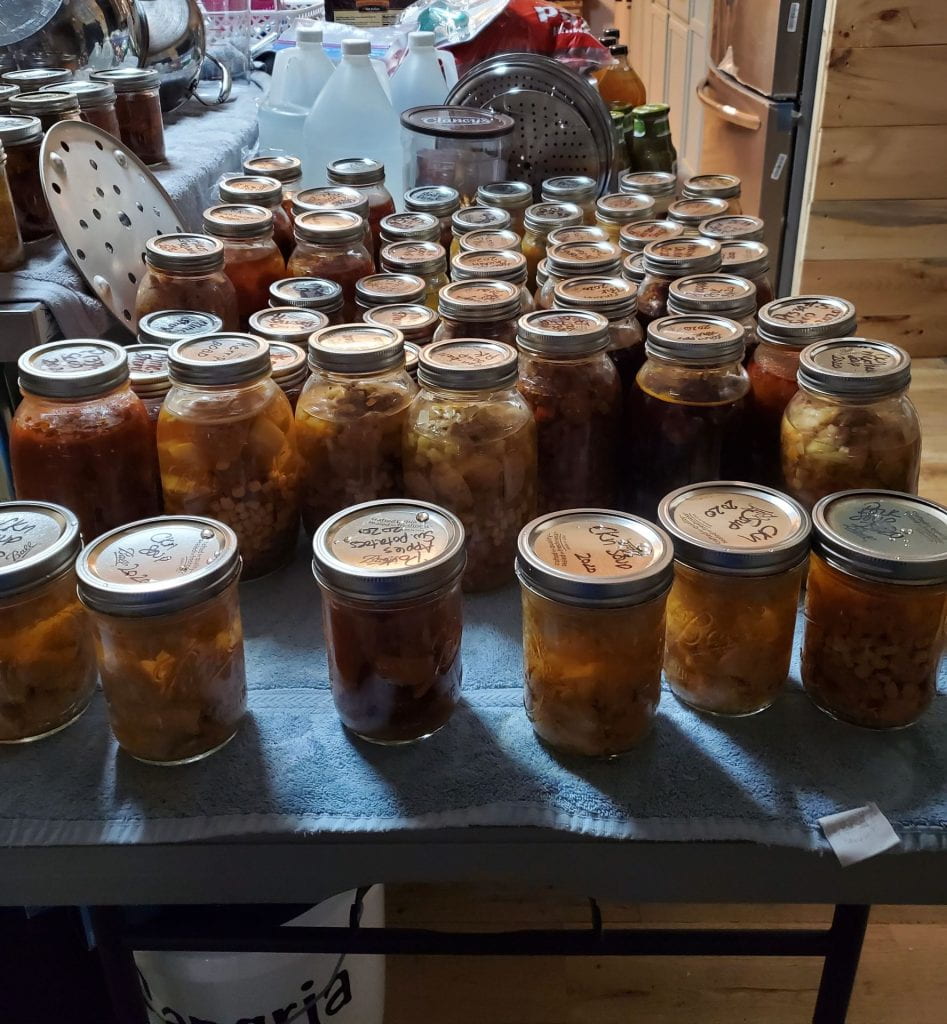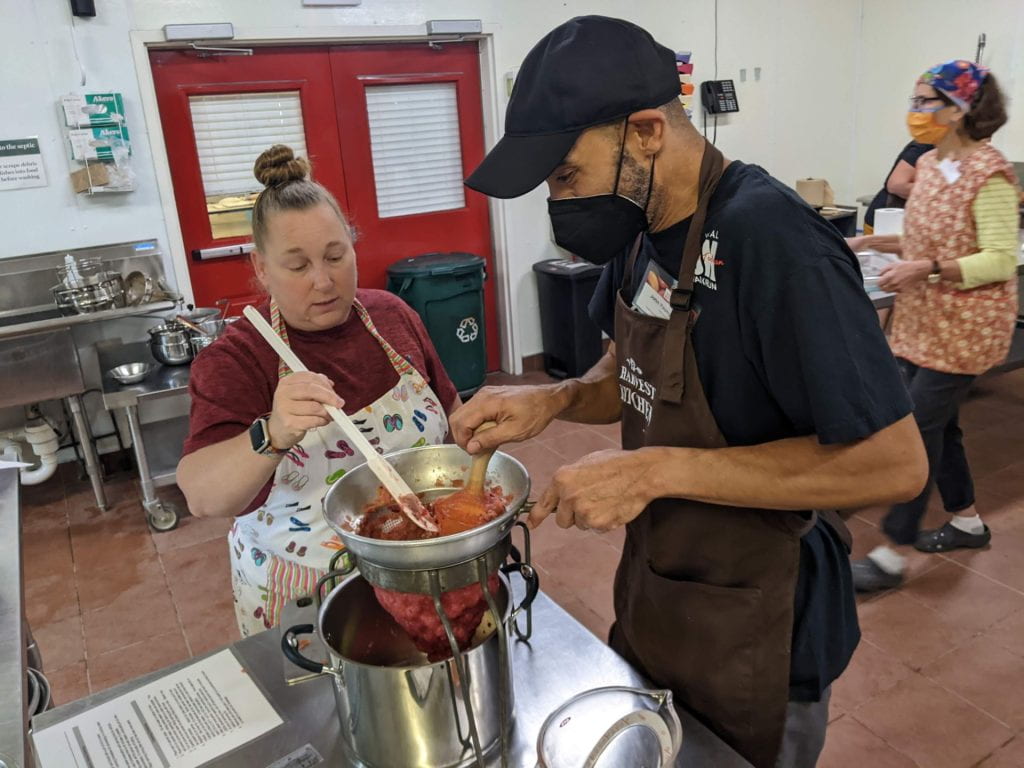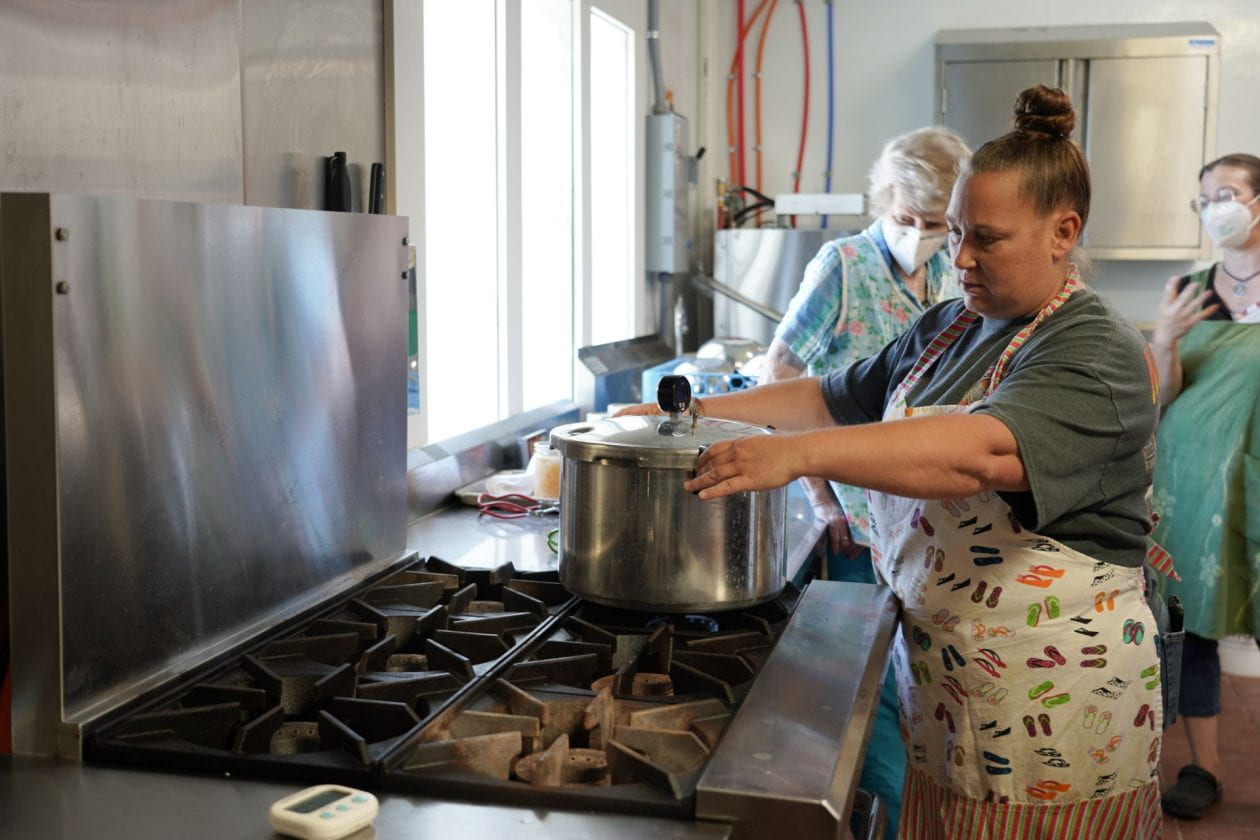How long have you been preserving food?
Since 1997. I started with my father’s green tomato pickle recipe and venison. My aunt and I spent a weekend canning and divided up the food. My next adventure involved canning squash, which I learned shortly thereafter was a bad thing! I did not do it correctly, and it spoiled in my pantry. The jars leaked the fermented, rotting squash, and it smelled very bad.
What are your favorite preservation methods?
I like dehydrating foods because it is easy; it saves space; and it’s versatile. I also enjoy pressure canning—I find I preserve many more low acid than high acid foods, the latter of which can be processed in a water bath canner. Plus, I can a lot of meat, which requires pressure canning.

What are some of your favorite foods to preserve and why?
I like to dehydrate apple slices until they are crunchy. I eat them like potato chips or crumble them into cereal, yogurt, or quick breads. I also like to pressure can meats for use as a quick meal solution on busy nights. I can chicken, pork, venison, beef, and turkey, which we use in tacos, casseroles, sandwiches, soups, stews, and stir fry. I like to make and can shepherd’s pie that my family need only heat up before eating. I also make and pressure can many, many different types of soup.

What foods or preserving methods have you not done that you want to do?
I would like to try smoking and curing meat, such as sausage or fish. I currently add sausage seasoning to canned beef, but obviously, that’s not the same thing! I’d also like to do more fermenting. I recently completed the Cornell Cooperative Extension’s “Fun with Fermenting!” class to help me get started. I have a batch of garlic fermenting in my kitchen, but it still needs some time to process. Next up, I plan to ferment some chili-based hot sauce.
You recently completed the Master Food Preserver training at the Cornell Cooperative Extension. What prompted you to do that?
I thoroughly enjoy preserving food for both my immediate family and gifting food to friends, especially if it is a new recipe. However, no one in my immediate circle wants to learn how or do food preservation, and I really want people to know that it is a safe way to help provide food security for themselves and their families. Food preservation doesn’t require tons of expensive equipment or a huge garden—I buy vegetables from farmers’ markets since I don’t have a large garden.

If you would like to meet some of Extension’s Master Food Preserver volunteers, sign up for one of our hands-on classes. The next workshop is Pressure Canning 101 on Saturday November 12th, 1-4pm at the Harvest Kitchen in Canton. Find more information and reserve your spot here.
Kathryn Farr has been growing and preserving vegetables and fruit for many years. She recently completed the Extension’s Master Food Preserver Volunteer training and is looking forward to Master Food Preserver certification.
